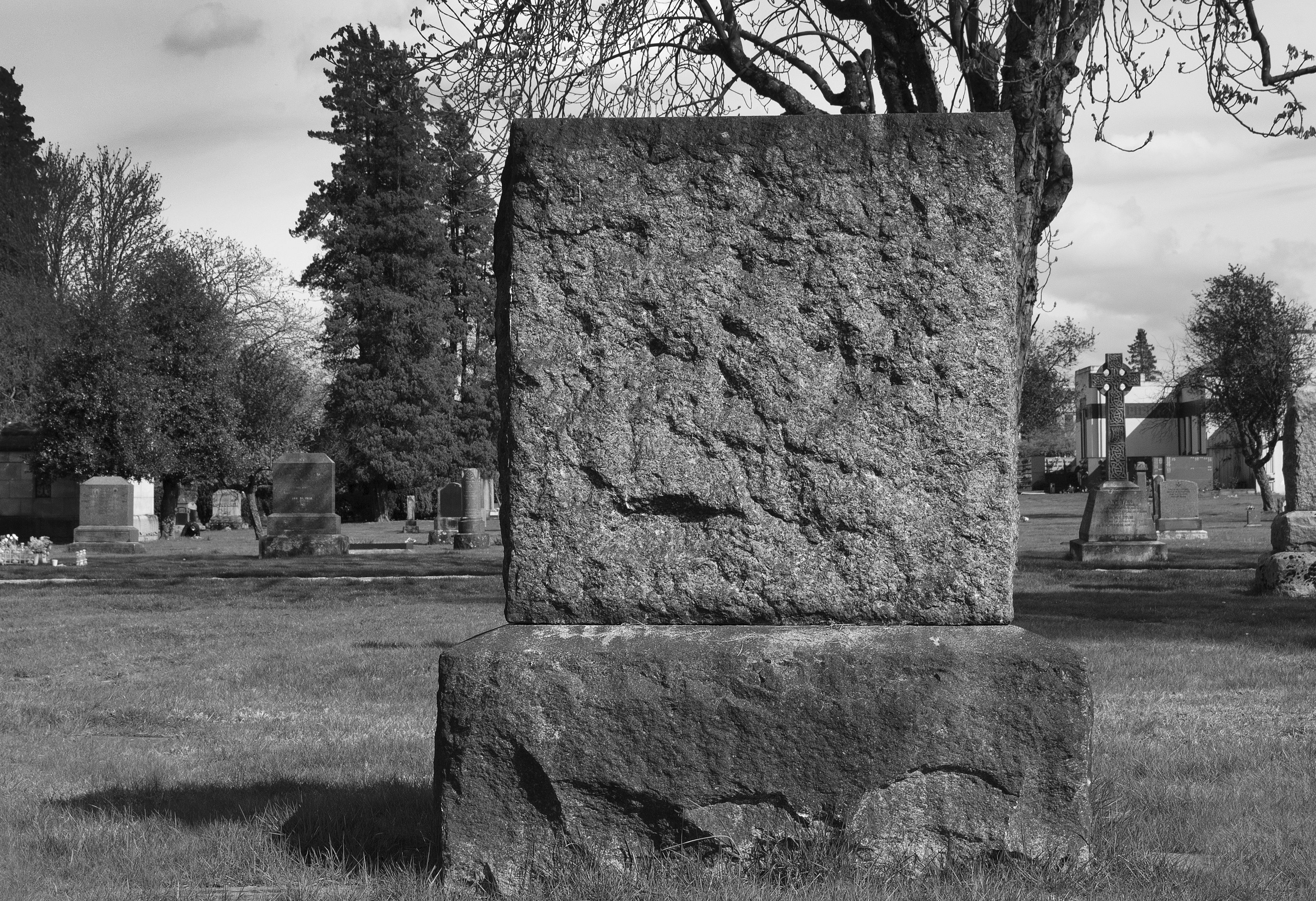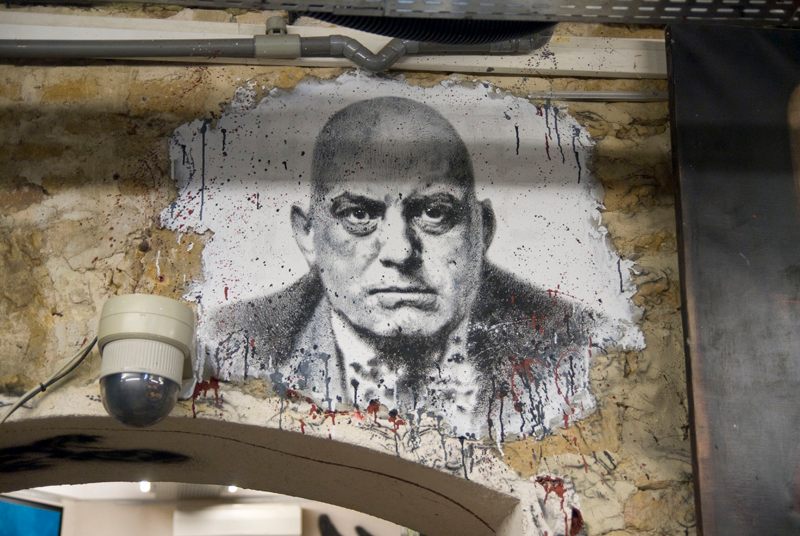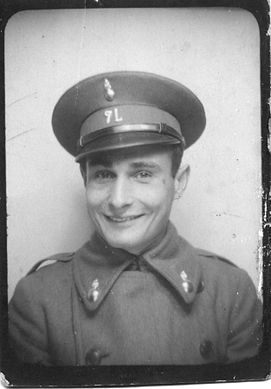Pseudocides: 5 of History’s Most Elaborate Fake Deaths
 (Photo: Mr. Nikon/shutterstock.com)
(Photo: Mr. Nikon/shutterstock.com)
The faking of one’s own death, while popular in the annals of daytime soaps, is ill-advised. Whether staged as a means of escaping financial ruin, evading criminal charges, or just for an ego-pleasing lark, pseudocide rarely ends well. Once the “deceased” is found and the jig is up, the undead becomes a pariah, ridiculed by an incredulous public before facing jail time for fraud and misuse of police resources.
Still, there is a certain daydreamy appeal to the faking of one’s own death: for those who feel they have run out of options, pseudocide offers an enticing blank slate on which to write themselves a brand-new life. This is the context in which we view the behavior of the following five fellows, each of which planned their own false demises.

Timothy Dexter and his canine companion. (Image from his poorly spelled 1802 book, A Pickle for the Knowing Ones)
“Lord” Timothy Dexter: The Egomaniacal Eccentric
As this gloriously detailed Priceonomics profile illustrates, Timothy Dexter of Newburyport, Massachusetts, was one of 18th-century America’s foremost oddballs. During the late 1770s, Dexter, who styled himself as a “lord” based on his own self-determined merits, managed to come into great wealth by buying up heavily depreciated currency that skyrocketed in value unexpectedly. Newly cashed up, Dexter built a lavish seaside mansion complete with 40 large statues of American heroes—including himself. (The inscription beneath his likeness read: “I am the first in the East, the first in the West, and the greatest philosopher in the Western world.” Having completed his formal education at the age of eight, Dexter had never studied philosophy.)
“Dexter gave himself up to his whims, was much of the time in a state of intoxication, and was constantly doing strange things,” wrote William Cleaves Todd in his 1886 book, Timothy Dexter, known as “Lord Timothy Dexter,” of Newburyport, Mass. An inquiry into his life and true character. Dexter’s oddness and egomania did not just manifest itself in false titles and craven idols. The man also recruited his own poet laureate to follow him around and extol the dubious virtues of his garish home and gilded horse coach.
In an ostentatious move that nonetheless acknowledged his status as mortal man rather than god, Dexter installed a mausoleum in his mansion, complete with a coffin handcrafted from the finest mahogany. This elegantly styled tomb was to be the location of Lord Timothy Dexter’s funeral. But Dexter was impatient, and couldn’t bear the idea of thousands gathering to mourn him without him being able to hear all the praise that would undoubtedly be heaped upon his lifeless body. So Dexter did what any rich, egomaniacal weirdo would do: he staged his own fake funeral.
Todd noted the particulars of the service:
“Some one was procured to officiate as clergyman, cards were sent out to invite the mourners, and Dexter watched the people to see how they were affected. He was satisfied with all except that his wife did not shed so many tears as he thought were becoming, for which, as the story is, he caned her severely after the ceremony.”

A portait of Aleister Crowley at the Abode of Chaos in Lyon, France. (Photo: Thierry Ehrmann/Flickr)
Aleister Crowley: Great Beast, Wicked Stunt
In September 1930, 54-year-old British occultist and self-proclaimed Great Beast Aleister Crowley traveled to Portugal with Hanni Jaeger, a 19-year-old German woman who was the latest initiate into his realm of sexual magick. While there, Crowley met and struck up a rapport with Portuguese poet Fernando Pessoa. Increasingly frustrated with Jaeger—in his diary he complained about her “pathological fear and lying”—Crowley hatched a plot with Pessoa: he would stage his own death at Boca do Inferno, a coastal cliff formation just west of Lisbon.
“Developed plan to utilize local scenery,” wrote a cagey Crowley in his diary on September 21, 1930. His suicide note was addressed to Jaeger: “Wrote: I cannot live without you,” he said in his diary. “The other “Boca do Inferno” [Mouth of Hell] will get me—it will not be as hot as yours.”
Pessoa the poet was only too willing to be part of the hoax, both before and after Crowley’s faked death. According to The Guardian, Pessoa “even earnestly explained how he had seen Crowley’s ghost the next day.”
Crowley turned up alive and well in Berlin three weeks later. Today, one of the rocks at Boca do Inferno bears a plaque inscribed with a Portuguese translation of Crowley’s faux suicide note. (You can see it for yourself on May 30 as part of an Obscura Day tour!)

Joan Pujol Garcia at 19, during his compulsory military service in Spain in 1931. (Photo: Fair use on Wikipedia)
Joan Pujol Garcia: The Double Agent
Joan Pujol Garcia’s cause of fake death was an unusual one: malaria. But nothing about Pujol was ordinary. During World War II, Pujol was a secret agent for both the Allies (under codename “Agent Garbo”) and the Germans (who knew him as “Arabel”), and played a key role in the downfall of Hitler.
Pujol’s double-crossing career had an unlikely beginning. As the manager of a Fawlty Towers-caliber hotel in Madrid in 1939, Garcia befriended a Spanish duke who came to stay. As Mental Floss details, the pair made a deal: Pujol supplied six bottles of then-rare Scotch to the duke and his two thirsty aunts in exchange for a passport he could use to flee Spain. But escape wasn’t easy. England had just declared war on Germany, and Hitler’s advances across Europe made relocation perilous. Nonetheless, Pujol was determined to stick it to Hitler, as Stephan Talty writes in his 2012 biography on Pujol, Agent Garbo:
“Pujol had failed in almost everything he’d tried in his thirty-two years: student, businessman, cinema magnate, soldier. His marriage was falling apart. But in one specialized area of war, the espionage underworld known as the double-cross game, the young man was a kind of savant, and he knew it. After years of suffering and doubt, Pujol hoped he was ready to match wits with the best minds of the Third Reich.”
By posing as a Spanish government official with a staunchly pro-Nazi stance, Pujol was able to secure a role as a spy for Germany. Instructed to go to England, Pujol instead went to Lisbon, where he used guidebooks about Britain to create false yet plausible reports for the Nazis. While in Portugal, he claimed to be traveling around Britain recruiting a network of anti-Allied spies.
By 1942, Britain had cottoned onto Pujol’s repeated, effective feeding of misinformation to the Third Reich. MI5 welcomed Pujol into its spy ranks and brought him to England. During the lead-up to the Battle of Normandy in 1944, Pujol managed to convince Germany that an Allied attack would come in July at Calais. When it came in June at Normandy, 160 miles away, Germany was underprepared and had to scramble to redeploy troops. The resulting Allied battle victory was the beginning of the end of World War II.
In 1944, shortly after the Normandy invasion, Pujol received military decorations from both Britain and Germany—the Nazis were still unaware of the double agent’s masterfully executed deceptions. When the war ended, however, Pujol feared exposure and punishment at the hands of the Germans. With the help of MI5, he crafted one last deception: a fake death. In 1949, the British Ambassador to Spain announced that Pujol had succumbed to malaria in Mozambique.
Freed from his former life, Pujol hung out in Venezuela for the next few decades, only emerging back into the limelight in 1984, when Pujol visited the beaches of Normandy to pay tribute to the battle he helped plan. Pujol died for the second and final time in 1988, aged 76.
 (Photo: Songquan Deng/shutterstock.com)
(Photo: Songquan Deng/shutterstock.com)
John Stonehouse: The Fed-Up Politician
On November 20, 1974, British Labour politician John Stonehouse disappeared from a Miami beach. A pile of his clothing was all that remained of the man, causing authorities to conclude he had drowned or even been chomped to death by a shark.
Five weeks later, Stonehouse, alive and well, was arrested in Australia. A policeman initially mistook him for another missing Brit, Lord Lucan, who also went AWOL in November 1974 following the murder of his nanny. Given that Lucan was known to have a large scar on his right thigh, police ordered the undead man to drop his trousers in order to properly identify him.
Stonehouse’s own rationale for his dramatic disappearance is certainly compelling. After being deported back to the UK, Stonehouse addressed the House of Commons with a 13-minute statement regarding his “extraordinary and bizarre conduct”:
“I suffered a complete mental breakdown, analysed by an eminent Australian psychiatrist as psychiatric suicide. It took the form of a repudiation of the life of Storehouse, because it had become intolerable to me. I assumed a new parallel personality that took over from me, which was foreign to me and which despised the humbug and sham of the past years of my life.”
Describing himself as a “broken man” with “lost ideals,” Stonehouse nonetheless continued to serve as an MP until he was convicted of fraud in August 1976 and sentenced to seven years’ imprisonment. Released from prison in 1979 after suffering a trio of heart attacks, Stonehouse died for real from a failed heart in 1988. Documents released in 2010 revealed he spent much of the 1960s operating a spy for Czechoslovakia while also serving as a British minister.
Marcus Schrenker: The High Flyer Who Crashed to Earth
Financial advisor Marcus Schrenker was in a dilly of a pickle at the beginning of 2009. Years of dodgy business dealings had left him in serious financial trouble, and there didn’t seem to be a way out. So Schrenker took a novel approach to the issue: he attempted to stage his own death-by-fiery-plane-crash.
On January 11, 2009, Schrenker took off from an airfield in Anderson, Indiana in his single-engine turboprop, bound—he said—for Florida. While over Alabama, Schrenker issued a distress call, saying that his windshield had been damaged and he was bleeding profusely. When military jets arrive to intercept the plane, they discovered it was flying with its door open, sans pilot. Schrenker had vanished. And the windshield was fully intact.
The turboprop eventually ran out of fuel and crash-landed in the Florida panhandle. By that point, Schrenker was already on the run, having parachuted into the wilds of Alabama. Police officers questioned him in the town of Childersburg, but Schrenker explained away his wet, dirty legs by telling them he had been in a canoe accident. The disgraced former financier ended up in a Florida campground, where U.S. Marshals found him in a tent with self-inflicted wounds to his wrists.
Schrenker is currently in an Orlando prison, having been convicted of securities fraud, deceiving the Coast Guard, illegal destroying an aircraft, and operating as an unregistered investment banker. His projected release date is September 18, 2015.












Follow us on Twitter to get the latest on the world's hidden wonders.
Like us on Facebook to get the latest on the world's hidden wonders.
Follow us on Twitter Like us on Facebook